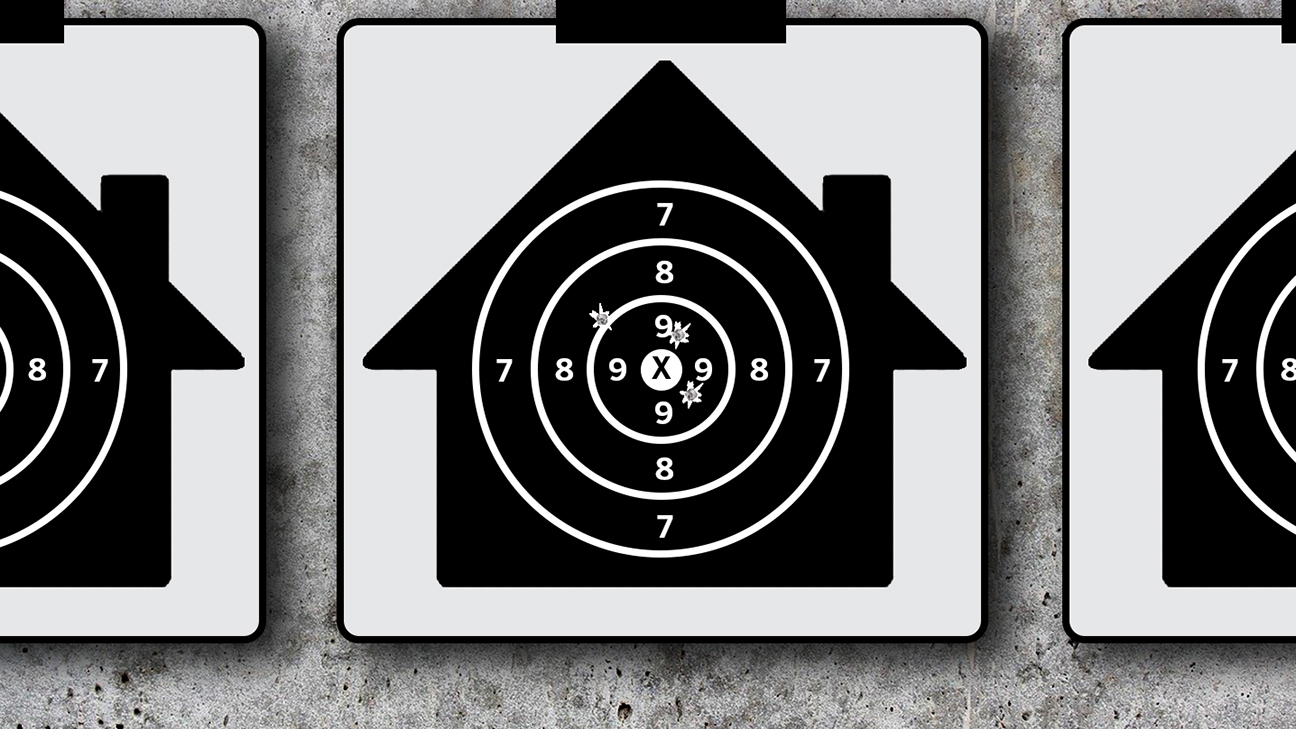 Aug. 24. A recent appeal filed by several homeowners in the Arrington development—a neighborhood of $300,000 homes off Bud Henderson Road on the western side of Huntersville—about the continued operation of the nearby Broken Arrow Shooting Range was unsuccessful. It leaves the NC Superior Court as their final recourse.
Aug. 24. A recent appeal filed by several homeowners in the Arrington development—a neighborhood of $300,000 homes off Bud Henderson Road on the western side of Huntersville—about the continued operation of the nearby Broken Arrow Shooting Range was unsuccessful. It leaves the NC Superior Court as their final recourse.
The range was there for years and then Huntersville grew up around it, and Arrington, a Lennar development, was built within shouting—and hearing—distance of an established business.
The case was heard on Aug. 11 and the Board of Adjustment rejected the appeal of the staff decision by a 7-0 vote.
Boards of Adjustment in North Carolina are composed of non-elected individuals and have quasi-judicial standing, which means they are limited to hearing appeals of decisions rendered by zoning administrators. Strict courtroom rules are invoked, and all speakers must be sworn in.
NC Rep Christy Clark and NC Sen. Natasha Marcus had been contacted by nearby residents about the case, who claimed activity at the range significantly increased. Clark and Marcus then wrote to the town Board of Adjustment asking them to carefully consider the issue. The letter seemingly had no impact on the decision, but it did concern Huntersville Mayor John Aneralla.

JOHN ANERALLA
“Several of my fellow board members and I were quite surprised and disappointed that Sen. Marcus and Rep. Clark sent a letter directly to the BOA. According to two attorneys I spoke with, their letter at a minimum was inappropriate considering the quasi-judicial nature of the hearing,” the Huntersville mayor said.
Aneralla is a well-known figure in the the NC Republican party, while both Clark and Marcus are Democrats up for re-election this fall.
Whether the letter sent by Clark and Marcus stepped over the line is subject to interpretation.
One highly placed town official in Mecklenburg County didn’t find it troublesome. “Anyone can submit anything into evidence. It is up to the Board of Adjustment to consider and weigh the evidence. No one is barred from submitting any type of evidence for consideration.”
Professor David Owens of the UNC School of Government takes a middle-of-the-road approach. “The purpose of a public hearing for a quasi-judicial decision is not to gather public opinion about whether the proposal would be good for the community. The purpose is to gather quality evidence in a fair manner to determine the facts of the case.”

CHRISTY CLARK
In most municipalities within the region, Boards of Adjustment are composed of the same individuals who serve on the Planning Boards. However, the hearings are conducted in a much more formal manner and strict rules must be followed.
Essentially, it is like a court hearing. State law sets specific procedures and the board’s discretion is limited. It must base its decision upon competent, relevant, and substantial evidence in the record. It is not a popularity contest.
In the Arrington case, the decision means that the Broken Arrow Range can continue to function as is. The facility opened decades ago under county regulations, before many of the town ordinances had even been established.

NATASHA MARCUS
As such, it was grandfathered into its current status as a non-conforming use.
The town only became aware of their existence in January 2015, according to Simoneau.
State law permits Board of Adjustment decisions in North Carolina to be appealed to NC Superior Court for review.

No surprise here. The guns rule in this area, both in town hall and elsewhere. And by all means, don’t dare to write any “inappropriate letters” about it.
Posted by Ken | August 24, 2020, 3:24 pm